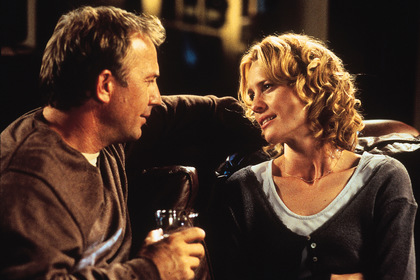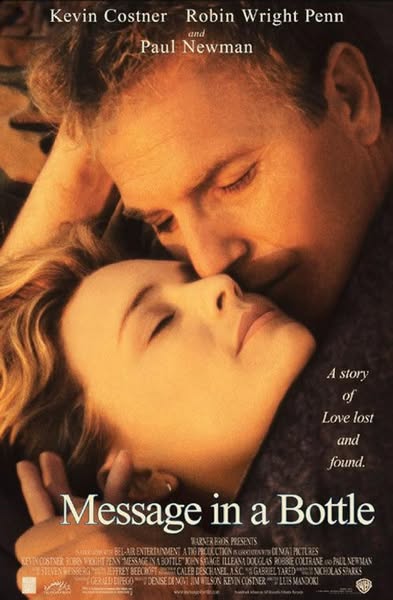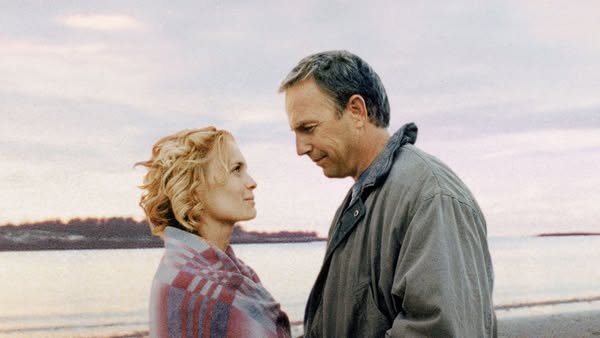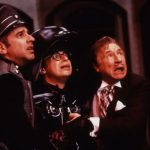Message in a Bottle (1999)

Message in a Bottle is a poignant romantic drama that explores the themes of love, loss, and the enduring connections that can transcend time and distance. Directed by Luis Mandoki, the film is based on the novel by Nicholas Sparks and features a compelling performance from Kevin Costner, alongside Robin Wright and Paul Newman.
The story centers around Garret Blake (Costner), a widower living in a coastal town, who is still grieving the loss of his beloved wife. His life takes an unexpected turn when a bottle containing a heartfelt letter washes ashore and is discovered by Theresa Osborne (Wright), a Boston newspaper columnist. The letter, written by Garret to his late wife, expresses profound love and longing, sparking Theresa’s curiosity and leading her on a quest to find the author.
As Theresa tracks down Garret, the film delves into the complexities of moving on after loss. The emotional weight of grief is palpable, beautifully portrayed by Costner, who captures Garret’s internal struggle as he grapples with his past while wrestling with the potential for new love. Robin Wright’s performance as Theresa is equally compelling; she embodies both vulnerability and determination, making her character relatable as she seeks fulfillment in her own life.

The film’s narrative unfolds with a blend of romance and emotional depth, exploring how love can manifest in various forms and how it can heal even the deepest wounds. As Garret and Theresa’s relationship develops, they navigate the challenges of their respective pasts, ultimately questioning what it means to truly love someone. The chemistry between Costner and Wright is palpable, adding a layer of authenticity to their journey.
Luis Mandoki’s direction effectively balances the film’s romantic elements with its underlying themes of heartache and healing. The cinematography captures the picturesque coastal settings, creating a visually stunning backdrop that enhances the emotional resonance of the story. The ocean serves as a powerful metaphor for the unknown—representing both the depth of Garret’s grief and the vast possibilities of new beginnings.

The film’s score, composed by Gabriel Yared, further elevates the emotional impact of the narrative. The music beautifully complements the poignant moments, enhancing the viewer’s connection to the characters’ experiences. The evocative melodies serve to underline the film’s exploration of love and longing, making the emotional scenes even more impactful.
Message in a Bottle does not shy away from the realities of love and loss. It presents a realistic portrayal of how individuals cope with grief and the difficulty of moving forward. The film encourages viewers to reflect on their own experiences with love, loss, and the connections that shape their lives. It highlights the importance of embracing new opportunities while honoring the memories of those who have

passed.
While the film received mixed reviews from critics, it has resonated with audiences, particularly those who appreciate heartfelt romantic dramas. Its exploration of enduring love and the complexities of human relationships strikes a chord, making it a memorable addition to the genre.
In conclusion, Message in a Bottle is a beautifully crafted film that delves into the intricacies of love, loss, and the human experience. With strong performances, compelling storytelling, and a visually stunning presentation, it invites viewers to reflect on the power of love to heal and transform lives. The film serves as a reminder that even in the face of grief, new connections can emerge, offering hope and possibility for the future. It is a touching exploration of how messages of love can transcend time and distance, leaving a lasting impact on those who encounter them.











